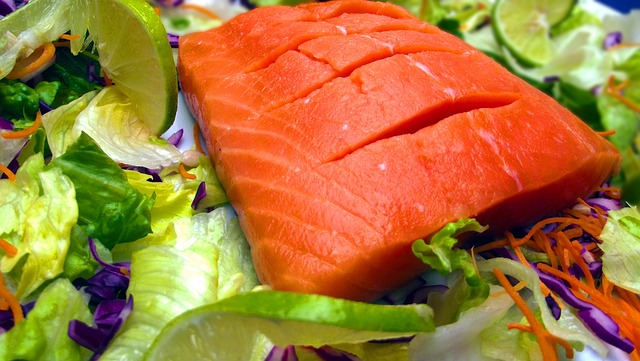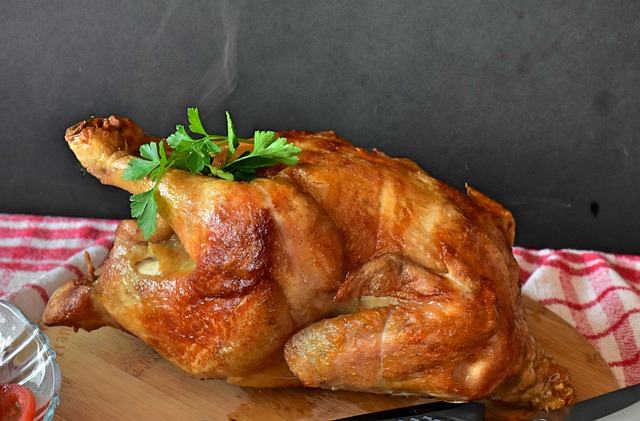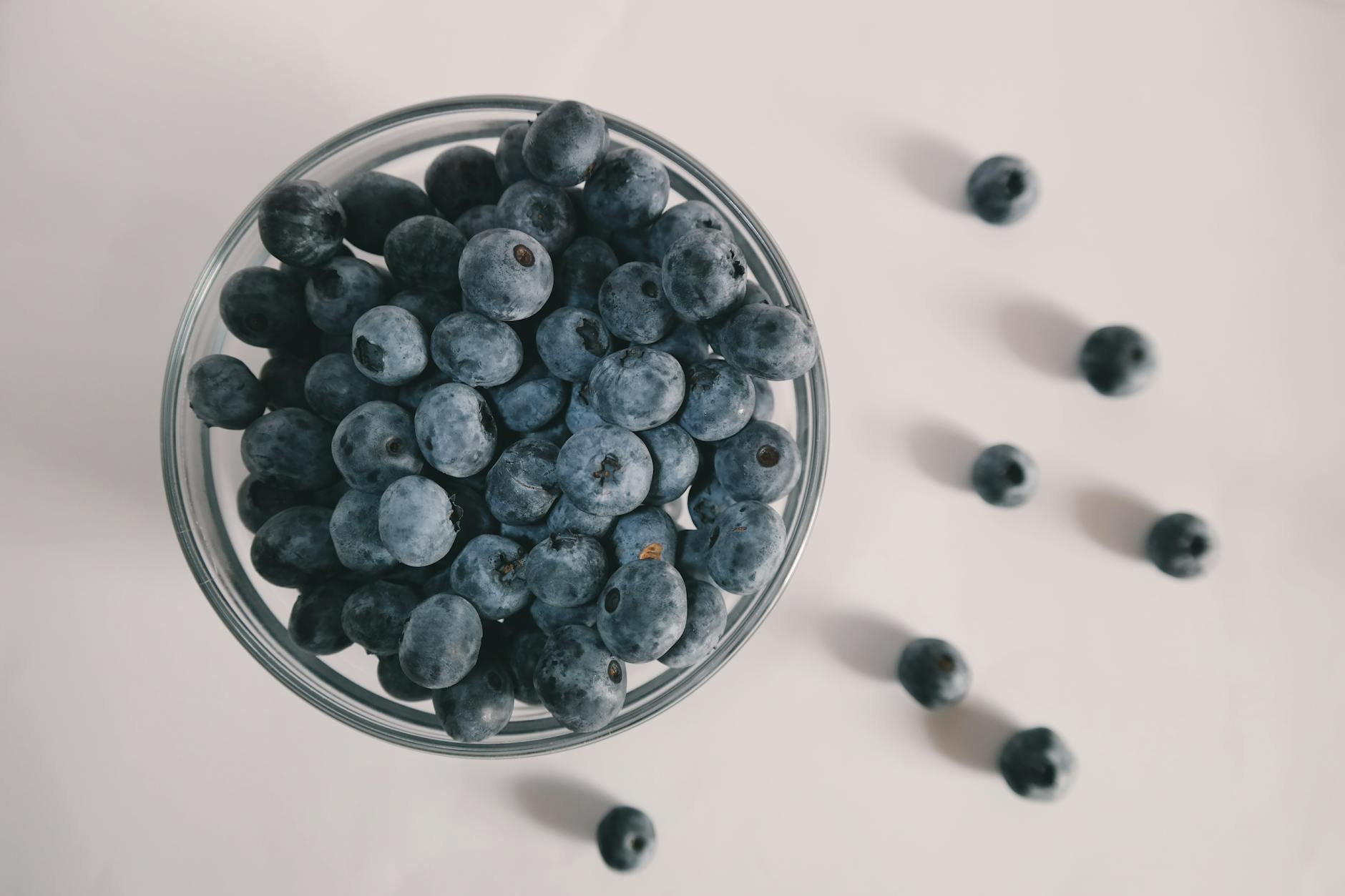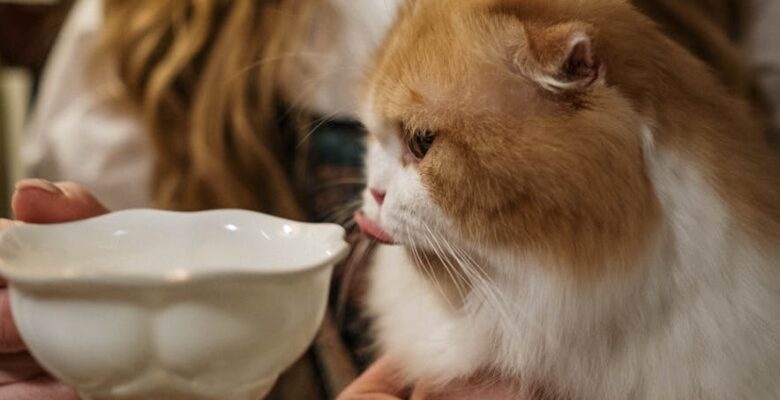Read on to find out which feline-friendly human foods that experts are recommending so you can start feeding your cat like any other family member.
Are you looking for a healthy snack for your cat? Fortunately, you don’t have to look much further than your cabinet to find cat-safe foods for your pet. Once you’ve determined which human foods cats can consume, you may get creative and make delightful DIY cat treats for your feline.
1. Salmon
According to Dr. Tina Wismer, medical director of the ASPCA Animal Poison Control Center, this fish has high protein and omega-3 fatty acids. It may be a delightful treat for cats and is frequently included in commercial cat food.
While some cat-friendly human foods can be served raw to your cat, Dr. Wismer recommends that she only eat cooked salmon.

PureBits salmon freeze-dried cat treats make it simple to provide your cat with the benefits of salmon while avoiding the cleanup.
2. Spinach
According to Dr. Wismer, spinach is high in minerals, Vitamins A, Vitamin C, and Vitamin K, as well as iron and calcium, and can be a healthy, cat-friendly treat.
Note: If your cat has a history of calcium oxalate bladder stones, you should not feed them spinach.
Because of its numerous health benefits, spinach is included in many cat meals. Purina Beyond Grain-Free Ocean Whitefish and Spinach canned cat food contains spinach among its top five ingredients, making it a natural, pate-style food for older cats.
3. Cantaloupe
According to Dr. Wismer, cantaloupe is one of the few cat-safe fruits due to its high antioxidant and beta-carotene content, which helps maintain healthy skin and eyes.
4. Eggs
Eggs, which are high in protein and B vitamins, are also healthy for your feline to consume, according to Dr. Wismer. To lessen the danger of food-borne illnesses, boil any eggs you serve your cat.
5. Fish Oils
Start giving your cat fish oil supplements! According to Emmy-winning veterinarian Dr. Jeff Werber, while pet parents can get away with feeding their dogs human food more frequently than cats, fish oil can benefit both species. As a matter of fact, fish oil is one of the best feline-friendly human foods you can give to your kitty. With a range of alternatives, including salmon and cod liver oil, omega 3s in fish oil can help keep your cat’s coat healthy and prevent dry skin all year round.
Supplements derived from wild-caught fish, such as PetHonesty Omega-3 Fish Oil Immune, Joint & Skin & Coat Supplement for Dogs & Cats, include natural fatty acids that promote skin and coat health.
6. Chickens
According to Werber, because cats are obligate carnivores and must eat mostly meat (unlike dogs, who are omnivores and can eat a variety of foods), their bodies are unable to digest fibrous foods as easily as dogs’ and do not always enjoy the variety of human foods that dogs do. They prefer any form of meat, such as chicken.
Chicken, a rich source of lean protein, can be a suitable alternative for your cat if completely cooked and the fatty skin is removed, according to Werber. Chicken is another item commonly featured in commercial cat meals.

7. Bananas
Bananas are a cat-safe snack. They have high potassium and soluble fiber content. Although bananas are a nutritious treat, they (like all of the things on this list) should not account for more than 10% of your cat’s daily calorie consumption, she emphasized.
8. Oatmeal
Oatmeal is another human food that may be found in commercial cat meals, such as Natural Balance Fat Cats low-calorie diet. It provides energy and B vitamins to your feline.
However, just because oatmeal is cat-safe does not mean that every kitty will enjoy it, so you should introduce these foods gradually and ensure that they appreciate them before including them in your cat’s regular diet.
9. Pumpkins
Can cats eat pumpkins? Pumpkins are not only low in calories and high in fiber, but they also work well as a therapy for cats with irregular feces. Pumpkins are a safe and healthful ingredient to use in cat treats.
Pumpkin is easily incorporated into your feline’s diet thanks to commercially available cat supplements. Weruva Pumpkin Patch is up! A single-serve bag of dog and cat food supplements contains a puree that promotes stool quality and healthy intestinal movement.
10. Cheeses
Are cats lactose intolerant, or can they eat cheese occasionally?
If your cat is interested in this feline-friendly diet, Dr. Wismer suggests feeding a hard cheese such as cheddar, Swiss, or Gouda. These cheeses are excellent in calcium and protein and can be baked into treats or given to your cat raw in tiny amounts.
11. Bread
According to Dr. Werber, bread is a rich source of fiber and protein, and some cats enjoy eating it.
12. Apples
These delicious fruits come in many colors and are high in fiber and vitamin C. According to Dr. Werber, cats can eat them as long as the peel, seeds, and stems are removed.
13. Blueberries
Blueberries, which are high in vitamins A and C, are included in some cat meals, such as American Journey salmon grain-free dry cat food, and some felines may even enjoy frozen blueberries, according to Dr. Wismer. Learn more about Blueberries for Cats.

14. Turkey
Another lean protein that cats can consume is turkey, such as roasted turkey breast or sliced deli meat.
15. Peas
Another cat-safe human food is peas, which are high in vitamins C and A and fiber. They are commonly found in commercial cat meals but can also be offered to your cat, frozen or uncooked.
16. Watermelon
Watermelon is a safe treat for cats when consumed in moderation. It is high in vitamins and minerals such as vitamins A, B1, B5, and C, as well as potassium and magnesium. Learn more about watermelon for cats.
17. Strawberries
Strawberries are a “fun, perfectly acceptable treat” for cats when consumed in moderation, according to small animal vet Dr. Sarah Wooten, DVM, CVJ of Silverthorne, Colorado. The delicious fruit contains fiber, vitamins, minerals, and antioxidants. Learn more about strawberries for cats.
How To Feed Feline-Friendly Human Foods
Even if your cat is healthy, you should restrict the number of goodies you offer him each day.
“Limit treats to 20 calories each day. That would be equivalent to 2 teaspoons of cooked salmon or chicken or 25 blueberries. However, you wouldn’t want to give them all of those berries,” added Dr. Wismer. “You can mix human food treats with cat treats to reach that number.”
If your kitty appears to be gaining weight as a result of feeding human food treats, she advised, you should reduce the number of treats you’re giving her.
Dr. Werber warns that when you introduce new meals to your cat, they may experience some gastrointestinal discomfort. If they’ve never eaten the meal before, their bodies may not be acclimated to digesting it, and they may be picky about what they consume. Dr. Werber’s advice? Give them a variety to see what they prefer, but keep everything in moderation and avoid any form of seasoning. To ensure that your cat has adequate daily nourishment, continue providing cat food in addition to any human food snacks.
To Conclude on Feline-Friendly Human Foods
So, the next time you snack on one of the foods listed above, you can be confident that your feline companion will be able to have a bite. And, when fed in moderation, these human foods can be a nutritious supplement to your cat’s diet.
